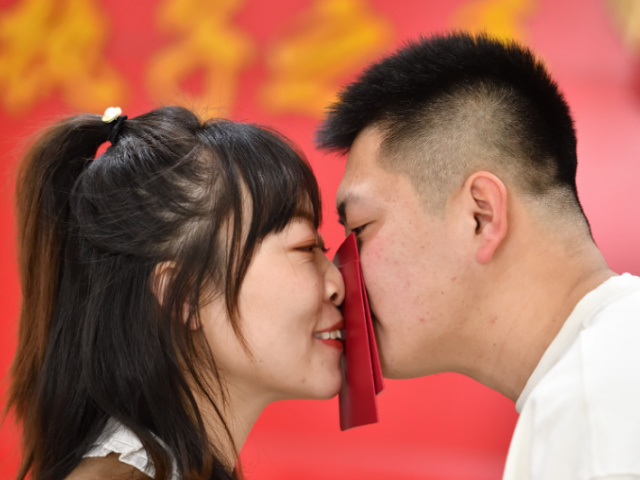A Chinese researcher has invented a device to allow long-distance couples to simulate kissing using censors and silicon “lips.”
The device, patented at Changzhou Vocational Institute of Mechatronic Technology in East China’s Jiangsu Province, is shaped like a human mouth and can “transfer the kiss gesture” by linking to a cell phone via blue tooth, Chinese state media outlet the Global Times reported.
The South China Morning Post reported the device can “simulate the actual pressure, movement and heat of a kisser’s lips using sensors, allowing the device to send an exact replica of the smacker to the recipient’s device.”
The device’s lead designer, Jiang Zheongli, explained that a seven-year long distance relationship with his now ex-girlfriend inspired him to undertake this project, per the South China Morning Post.
“In my university, I was in a long distance relationship with my girlfriend so we only contact with each other through phone. That’s where the inspiration of this device originated,” he said, per the Global Times.
The South China Morning Post noted that Jiang mentioned allowing people who suffer from diseases of the mouth to simulate kissing as another possible use case for the device.
The device also had a feature known as “Kiss Square” that allows users to match with others, per the South China Morning Post.
CNN noted the device currently sells online for 288 yuan, or about $41, and has already garnered numerous reviews.
“My partner didn’t believe that (remote) kissing could be achieved at first, so her jaw dropped when she used it … This is the best surprise I have given her during our long-distance relationship,” the outlet quoted one user as saying.
However, CNN also observed that others were less enthused by the product, with one social media user saying, “I don’t understand (the device) but I’m utterly shocked.”
The Global Times reported the patent Jiang filed in 2019 expired in January and that he hopes others will improve on his original design.

COMMENTS
Please let us know if you're having issues with commenting.